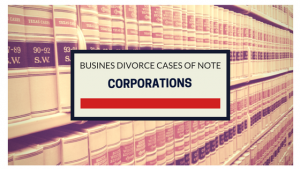-
Limited Liability Company laws in New Jersey and many states provide a cause of action for the oppression of minority members of company against those in control of the business.
-
Oppression of a minority LLC member is measured by the reasonable expectations of the minority member in those states that have adopted the Uniform Limited Liability Company Act
-
Courts assess reasonable expectations by looking at the operating agreement, the behavior of the members and purpose of the members in joining the business.
 Majority rule in any limited liability company is not without its risks, in particular the potential for the majority owners to oppress the minority members, together with the difficulty the minority member is likely to have in recouping the investment in the business.
Majority rule in any limited liability company is not without its risks, in particular the potential for the majority owners to oppress the minority members, together with the difficulty the minority member is likely to have in recouping the investment in the business.
Minority members of a limited liability company may always voluntarily dissociate, or resign, as a member, at which point they give up the right to participate in management. As a “dissociated member,” the minority member who has resigned is entitled to his or her share of profits, but not to participate in decisions or get full information about the operations of the business. Continue reading

 The Business Divorce Law Report
The Business Divorce Law Report


 Majority rule in any limited liability company is not without its risks, in particular the potential for the majority owners to oppress the minority members, together with the difficulty the minority member is likely to have in recouping the investment in the business.
Majority rule in any limited liability company is not without its risks, in particular the potential for the majority owners to oppress the minority members, together with the difficulty the minority member is likely to have in recouping the investment in the business.